- Home
- Charlotte Bronte
The Professor Page 7
The Professor Read online
Page 7
CHAPTER VI.
I RE-ENTERED the town a hungry man; the dinner I had forgotten recurredseductively to my recollection and it was with a quick step and sharpappetite I ascended the narrow street leading to my lodgings. It wasdark when I opened the front door and walked into the house. I wonderedhow my fire would be; the night was cold, and I shuddered at theprospect of a grate full of sparkless cinders. To my joyful surprise,I found, on entering my sitting-room, a good fire and a clean hearth.I had hardly noticed this phenomenon, when I became aware of anothersubject for wonderment; the chair I usually occupied near the hearth wasalready filled; a person sat there with his arms folded on his chest,and his legs stretched out on the rug. Short-sighted as I am, doubtfulas was the gleam of the firelight, a moment's examination enabled me torecognize in this person my acquaintance, Mr. Hunsden. I could not ofcourse be much pleased to see him, considering the manner in which I hadparted from him the night before, and as I walked to the hearth, stirredthe fire, and said coolly, "Good evening," my demeanour evinced aslittle cordiality as I felt; yet I wondered in my own mind what hadbrought him there; and I wondered, also, what motives had induced him tointerfere so actively between me and Edward; it was to him, it appeared,that I owed my welcome dismissal; still I could not bring myself toask him questions, to show any eagerness of curiosity; if he chose toexplain, he might, but the explanation should be a perfectly voluntaryone on his part; I thought he was entering upon it.
"You owe me a debt of gratitude," were his first words.
"Do I?" said I; "I hope it is not a large one, for I am much too poor tocharge myself with heavy liabilities of any kind."
"Then declare yourself bankrupt at once, for this liability is a tonweight at least. When I came in I found your fire out, and I had it litagain, and made that sulky drab of a servant stay and blow at it withthe bellows till it had burnt up properly; now, say 'Thank you!'"
"Not till I have had something to eat; I can thank nobody while I am sofamished."
I rang the bell and ordered tea and some cold meat.
"Cold meat!" exclaimed Hunsden, as the servant closed the door, "what aglutton you are; man! Meat with tea! you'll die of eating too much."
"No, Mr. Hunsden, I shall not." I felt a necessity for contradictinghim; I was irritated with hunger, and irritated at seeing him there, andirritated at the continued roughness of his manner.
"It is over-eating that makes you so ill-tempered," said he.
"How do you know?" I demanded. "It is like you to give a pragmaticalopinion without being acquainted with any of the circumstances of thecase; I have had no dinner."
What I said was petulant and snappish enough, and Hunsden only repliedby looking in my face and laughing.
"Poor thing!" he whined, after a pause. "It has had no dinner, has it?What! I suppose its master would not let it come home. Did Crimsworthorder you to fast by way of punishment, William!"
"No, Mr. Hunsden." Fortunately at this sulky juncture, tea, was broughtin, and I fell to upon some bread and butter and cold beef directly.Having cleared a plateful, I became so far humanized as to intimate toMr. Hunsden that he need not sit there staring, but might come to thetable and do as I did, if he liked.
"But I don't like in the least," said he, and therewith he summoned theservant by a fresh pull of the bell-rope, and intimated a desire tohave a glass of toast-and-water. "And some more coal," he added; "Mr.Crimsworth shall keep a good fire while I stay."
His orders being executed, he wheeled his chair round to the table, soas to be opposite me.
"Well," he proceeded. "You are out of work, I suppose."
"Yes," said I; and not disposed to show the satisfaction I felt on thispoint, I, yielding to the whim of the moment, took up the subject asthough I considered myself aggrieved rather than benefited by what hadbeen done. "Yes--thanks to you, I am. Crimsworth turned me off ata minute's notice, owing to some interference of yours at a publicmeeting, I understand."
"Ah! what! he mentioned that? He observed me signalling the lads, didhe? What had he to say about his friend Hunsden--anything sweet?"
"He called you a treacherous villain."
"Oh, he hardly knows me yet! I'm one of those shy people who don't comeout all at once, and he is only just beginning to make my acquaintance,but he'll find I've some good qualities--excellent ones! The Hunsdenswere always unrivalled at tracking a rascal; a downright, dishonourablevillain is their natural prey--they could not keep off him whereverthey met him; you used the word pragmatical just now--that word is theproperty of our family; it has been applied to us from generation togeneration we have fine noses for abuses; we scent a scoundrel a mileoff; we are reformers born, radical reformers; and it was impossible forme to live in the same town with Crimsworth, to come into weekly contactwith him, to witness some of his conduct to you (for whom personallyI care nothing; I only consider the brutal injustice with which heviolated your natural claim to equality)--I say it was impossible forme to be thus situated and not feel the angel or the demon of my raceat work within me. I followed my instinct, opposed a tyrant, and broke achain."
Now this speech interested me much, both because it brought outHunsden's character, and because it explained his motives; it interestedme so much that I forgot to reply to it, and sat silent, pondering overa throng of ideas it had suggested.
"Are you grateful to me?" he asked, presently.
In fact I was grateful, or almost so, and I believe I half liked him atthe moment, notwithstanding his proviso that what he had done was notout of regard for me. But human nature is perverse. Impossible to answerhis blunt question in the affirmative, so I disclaimed all tendencyto gratitude, and advised him if he expected any reward for hischampionship, to look for it in a better world, as he was not likelyto meet with it here. In reply he termed me "a dry-hearted aristocraticscamp," whereupon I again charged him with having taken the bread out ofmy mouth.
"Your bread was dirty, man!" cried Hunsden--"dirty and unwholesome!It came through the hands of a tyrant, for I tell you Crimsworth is atyrant,--a tyrant to his workpeople, a tyrant to his clerks, and willsome day be a tyrant to his wife."
"Nonsense! bread is bread, and a salary is a salary. I've lost mine, andthrough your means."
"There's sense in what you say, after all," rejoined Hunsden. "I mustsay I am rather agreeably surprised to hear you make so practicalan observation as that last. I had imagined now, from my previousobservation of your character, that the sentimental delight you wouldhave taken in your newly regained liberty would, for a while at least,have effaced all ideas of forethought and prudence. I think better ofyou for looking steadily to the needful."
"Looking steadily to the needful! How can I do otherwise? I must live,and to live I must have what you call 'the needful,' which I can onlyget by working. I repeat it, you have taken my work from me."
"What do you mean to do?" pursued Hunsden coolly. "You have influentialrelations; I suppose they'll soon provide you with another place."
"Influential relations? Who? I should like to know their names."
"The Seacombes."
"Stuff! I have cut them."
Hunsden looked at me incredulously.
"I have," said I, "and that definitively."
"You must mean they have cut you, William."
"As you please. They offered me their patronage on condition of myentering the Church; I declined both the terms and the recompence; Iwithdrew from my cold uncles, and preferred throwing myself into myelder brother's arms, from whose affectionate embrace I am now torn bythe cruel intermeddling of a stranger--of yourself, in short."
I could not repress a half-smile as I said this; a similardemi-manifestation of feeling appeared at the same moment on Hunsden'slips.
"Oh, I see!" said he, looking into my eyes, and it was evident he didsee right down into my heart. Having sat a minute or two with his chinresting on his hand, diligently occupied in the continued perusal of mycountenance, he went on:
"Seriously,
have you then nothing to expect from the Seacombes?"
"Yes, rejection and repulsion. Why do you ask me twice? How can handsstained with the ink of a counting-house, soiled with the grease ofa wool-warehouse, ever again be permitted to come into contact witharistocratic palms?"
"There would be a difficulty, no doubt; still you are such a completeSeacombe in appearance, feature, language, almost manner, I wonder theyshould disown you."
"They have disowned me; so talk no more about it."
"Do you regret it, William?"
"No."
"Why not, lad?"
"Because they are not people with whom I could ever have had anysympathy."
"I say you are one of them."
"That merely proves that you know nothing at all about it; I am mymother's son, but not my uncles' nephew."
"Still--one of your uncles is a lord, though rather an obscure and not avery wealthy one, and the other a right honourable: you should considerworldly interest."
"Nonsense, Mr. Hunsden. You know or may know that even had I desired tobe submissive to my uncles, I could not have stooped with a good enoughgrace ever to have won their favour. I should have sacrificed my owncomfort and not have gained their patronage in return."
"Very likely--so you calculated your wisest plan was to follow your owndevices at once?"
"Exactly. I must follow my own devices--I must, till the day of mydeath; because I can neither comprehend, adopt, nor work out those ofother people."
Hunsden yawned. "Well," said he, "in all this, I see but one thingclearly-that is, that the whole affair is no business of mine." Hestretched himself and again yawned. "I wonder what time it is," he wenton: "I have an appointment for seven o'clock."
"Three quarters past six by my watch."
"Well, then I'll go." He got up. "You'll not meddle with trade again?"said he, leaning his elbow on the mantelpiece.
"No; I think not."
"You would be a fool if you did. Probably, after all, you'll thinkbetter of your uncles' proposal and go into the Church."
"A singular regeneration must take place in my whole inner and outer manbefore I do that. A good clergyman is one of the best of men."
"Indeed! Do you think so?" interrupted Hunsden, scoffingly.
"I do, and no mistake. But I have not the peculiar points which go tomake a good clergyman; and rather than adopt a profession for which Ihave no vocation, I would endure extremities of hardship from poverty."
"You're a mighty difficult customer to suit. You won't be a tradesmanor a parson you can't be a lawyer, or a doctor, or a gentleman, becauseyou've no money. I'd recommend you to travel."
"What! without money?"
"You must travel in search of money, man. You can speak French--witha vile English accent, no doubt--still, you can speak it. Go on to theContinent, and see what will turn up for you there."
"God knows I should like to go!" exclaimed I with involuntary ardour.
"Go: what the deuce hinders you? You may get to Brussels, for instance,for five or six pounds, if you know how to manage with economy."
"Necessity would teach me if I didn't."
"Go, then, and let your wits make a way for you when you get there. Iknow Brussels almost as well as I know X----, and I am sure it wouldsuit such a one as you better than London."
"But occupation, Mr. Hunsden! I must go where occupation is to be had;and how could I get recommendation, or introduction, or employment atBrussels?"
"There speaks the organ of caution. You hate to advance a step beforeyou know every inch of the way. You haven't a sheet of paper and apen-and-ink?"
"I hope so," and I produced writing materials with alacrity; for Iguessed what he was going to do. He sat down, wrote a few lines, folded,sealed, and addressed a letter, and held it out to me.
"There, Prudence, there's a pioneer to hew down the first roughdifficulties of your path. I know well enough, lad, you are not one ofthose who will run their neck into a noose without seeing how theyare to get it out again, and you're right there. A reckless man ismy aversion, and nothing should ever persuade me to meddle with theconcerns of such a one. Those who are reckless for themselves aregenerally ten times more so for their friends."
"This is a letter of introduction, I suppose?" said I, taking theepistle.
"Yes. With that in your pocket you will run no risk of finding yourselfin a state of absolute destitution, which, I know, you will regard as adegradation--so should I, for that matter. The person to whom you willpresent it generally has two or three respectable places depending uponhis recommendation."
"That will just suit me," said I.
"Well, and where's your gratitude?" demanded Mr. Hunsden; "don't youknow how to say 'Thank you?'"
"I've fifteen pounds and a watch, which my godmother, whom I never saw,gave me eighteen years ago," was my rather irrelevant answer; and Ifurther avowed myself a happy man, and professed that I did not envy anybeing in Christendom.
"But your gratitude?"
"I shall be off presently, Mr. Hunsden--to-morrow, if all be well: I'llnot stay a day longer in X---- than I'm obliged."
"Very good--but it will be decent to make due acknowledgment for theassistance you have received; be quick! It is just going to strikeseven: I'm waiting to be thanked."
"Just stand out of the way, will you, Mr. Hunsden: I want a key there ison the corner of the mantelpiece. I'll pack my portmanteau before I goto bed."
The house clock struck seven.
"The lad is a heathen," said Hunsden, and taking his hat from asideboard, he left the room, laughing to himself. I had half aninclination to follow him: I really intended to leave X---- the nextmorning, and should certainly not have another opportunity of biddinghim good-bye. The front door banged to.
"Let him go," said I, "we shall meet again some day."

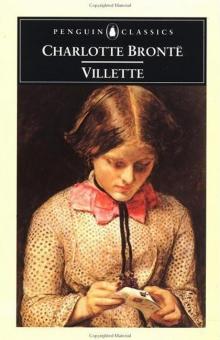 Villette
Villette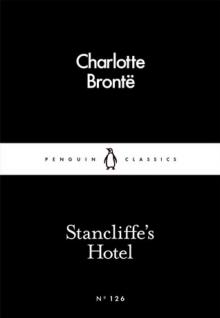 Stancliffe's Hotel
Stancliffe's Hotel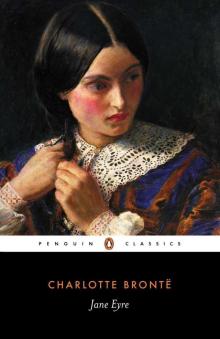 Jane Eyre
Jane Eyre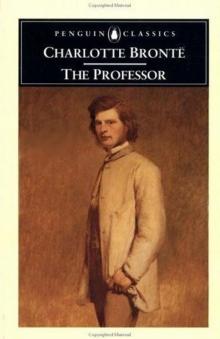 The Professor
The Professor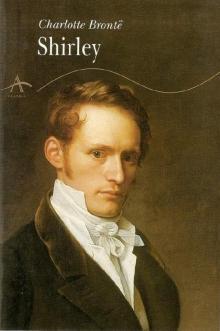 Shirley
Shirley The Complete Novels of Charlotte Brontë
The Complete Novels of Charlotte Brontë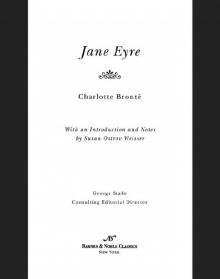 Jane Eyre (Barnes & Noble Classics Series)
Jane Eyre (Barnes & Noble Classics Series)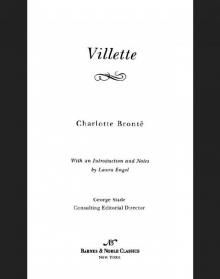 Villette (Barnes & Noble Classics Series)
Villette (Barnes & Noble Classics Series)